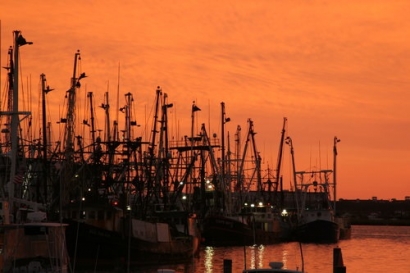
This first-of-its-kind partnership will create an opportunity for commercial fishermen to provide direct input to the wind energy industry on matters of significant interest to their businesses. Under this partnership, both industries will remain autonomous but provide a platform to move towards workable solutions. While non-binding in nature, it is RODA and Ørsted’s hope that discussions will prove beneficial to all parties involved.
“Partnering with Ørsted is a significant step forward as we look to strengthen our ongoing dialogue between commercial fishermen and offshore wind developers,” said RODA Executive Director Annie Hawkins. “RODA believes that we need to develop solutions for offshore wind energy and commercial fishing to coexist, and today’s announcement will support future sustainability for both industries.”
RODA is the only national commercial fishing organization that is purpose-built for interacting with the offshore wind industry to maintain sustainable fisheries. Based from Midcoast Maine to the Outer Banks of North Carolina, it also has the broadest geographic and gear-type range of any East Coast fishing industry membership organization active in offshore wind engagement.
The RODA Board of Directors consists of fishing industry representatives who bring over 200 years of combined operational and management experience, split across the range of federally and state-managed Atlantic fisheries. One of RODA’s primary goals is to ensure that the fishing industry’s input at-large is received, considered, and accommodated to the maximum extent possible in leasing, design, construction, and operations of new offshore developments.
“It is extremely vital that our nation’s fishermen are heard when offshore wind projects are being developed,” said RODA Chairman and Director of Sustainability at Atlantic Capes Fisheries Peter Hughes.
A core component of the partnership will be the creation of a joint industry task force to explore improved approaches to project siting, design and operations. The two industries have already engaged in extensive communication regarding topics ranging from navigation concerns (including transit lanes and turbine layouts) and other impacts avoidance to identifying a mutual interest in developing transparent strategies for long-term mitigation. This new initiative will provide a more structured process for further collaboration between the two industries.

